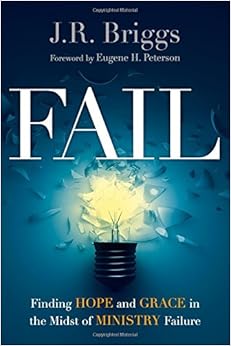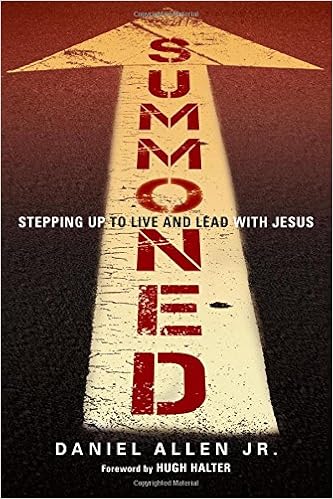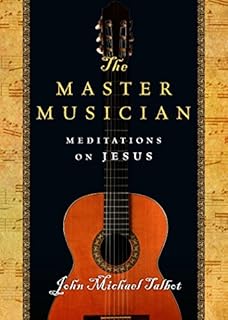WHAT
HAPPENED?
I got a text message from my mom’s fiancé on Friday
morning. There is a shooter on the loose….it said. I did not read much further
than that. Hal, even though he is nearing 70, tends to spend a lot his free
time texting in group texts to family and friends about stuff. I thought maybe
there was a crazy running around Phoenix. There had been a few freeway
shootings on the highway there lately. Big city stuff I thought. Pray a little
prayer for Mom and Hal and move on. I had work to get caught up on, and I could
not do anything.
Then, I came home and turned on the television. I
discovered that the shooter was not in Phoenix, it was in Roseburg, Oregon.
Roseburg, Oregon is my hometown. I was born there. My mother’s side of the
family homesteaded there in the 1800s. When I was little, we moved from an
unincorporated community called Melrose, to an area just north of Winchester on
the North Umpqua River. When I was growing up, we stopped at the fish ladder
quite often to go to a viewing area and watch the fish climb up through the
“ladder from the bottom of the dam up to the top. The dam is less than a mile
from the UCC campus. At one point, we lived upriver from that campus and the
dam, and thus drove by it going back and forth to town every day. My mom, my
aunt, my uncle, and my grandmother at one point or another had all taken
classes at Umpqua Community College.
So, needless to say, although with all the shootings
that have happened I had become kind of numb to the mass shooting thing, this
particular event caught my attention, and affected me a little bit more deeply
than I expected.
I watched and wondered, would I know the shooter. I
knew of course, that this was highly doubtful. Although I have some family
there, many of us have moved away. I have not lived there since late grade
school. But I was grieved that most likely, that when someone asks me where I
was born and raised, one of the questions they will ask me is not about the
lumber company or the beauty of the forests and rivers, but isn’t that the
place where….
And of course, when this happens, we try and make
sense of what happened, but we cannot make sense of what happened really. I
mean we will hear that the guy was a loner, that he was angry and confused,
that he didn’t really have any friends in real life, and all of that.
Some will argue for gun control. Others for better
mental health testing. Others will want every student and teacher packing heat.
All of them will seek to find causation. Find someone to blame. Maybe we need
to do all that if we are going to keep this kind of thing from happening over
and over again. But really, none of all of this is really going to make sense,
and lend itself to easy answers.
This is especially true if you were to talk to the
parents and children of the people who died. Why did this happen to my child?
What was the purpose of all of this? There are no easy answers.
We have had a lot to deal with as individuals and a
congregation in the last months, and in the last years. Those dear to us have
died tragic deaths. Our health has inexplicably taken a turn for the worse. Our
families have fallen apart. Our friendships have unexpectedly turned sour. We
have searched for work, and not been able to fine any. And we wonder, “What
Happened? Why am I having to go through this? Why me?”
Thank goodness the book of Job doesn’t try to make
all that happened to Job make sense to us either. At least not with slogans or
simple platitudes.
The book of Job begins by introducing us to Job. We
learn that Job is a good guy. He is upright. He is blameless. He is the best
guy around. In other words, whatever happens in the next 40 something chapters,
you need to know that all of the hard things that are coming to Job are not his
fault. The difficulties that he has faced are not the result of his sin, of his
shortcomings, of the things that he has done wrong.
We need to remember this. The rain falls on the just
and the unjust. The storms come to the man who built his house on the rock and
the one that built his house upon the sand. There isn’t always an answer for
why things happen that are heartbreaking and tragic. Sometimes they just
happen. The good and the bad are both a part of life in the world we live in.
For most of Job’s life, things went perfectly. He
was wealthy. He had a nice family. A good reputation. One day it began to
unravel. His wealth, through a series of events, was stolen. And then, in a
freak accident, his children were killed. And so he grieved.
Soon after that, Job was afflicted with boils. Inflamed
painful, infected boils. As if things were not bad enough. Then, while Job was
trying to grieve and wrap his head about everything that happened, his wife
begins a conflict with him. She tells him that he should give up on his faith,
and kill himself. Apparently, she is not happy with him either.
To her mind,
whatever he had built his life around was not really doing much for him now,
and should be abandoned—including his relationship with God.
He is not very kind in return. He insults his wife,
and says this, “Shall we accept good from God and not trouble?”
And then he is quiet. By the end of chapter 2, his
friends gather, and sit with him. They do not say a word. They see how much he
is suffering, and they just sit with him.
There is much discussion to be made of the argument
between God and Satan, and Satan’s work at attacking Job. If you read the
story, Satan enters God’s presence. He claims that Job is righteous because God
has given him an easy life, and then he goes about trying to make Job so
miserable he will lose his integrity and faith.
As we see this part of the story, we could speak of spiritual warfare. We could
talk about the way that Satan works to attack believers, and what he is able to
do and not able to do. Indeed Jesus says that the enemy has come to kill and
destroy, but God has come to give life and give it to the full. But, the role
of Satan as a part of the problem of evil in the world is an item I would like
to save for another day.
For our
purposes today, we need to know this. Job’s suffering is not something directly
caused by his sin.Job’s suffering is not something directly caused by God,
although God somehow for some reason allowed it to happen.Job’s suffering was
caused by the evil that is out and around in the world. It has a cause outside
of God’s hand and our own. We can’t blame God. It is not our own fault either.
Sometimes bad things happen, you know? Not because
someone did something wrong. Not because someone deserved anything. But because
life is hard. It is, sometimes.
Life is not a technology to be conquered, it is
often a mystery to be lived into by faith.
Satan’s argument to God was that Job’s faith was
inauthentic. That he believed that it was inauthentic because Job was so
blessed, and when his blessings were taken away, when the difficult things in
life come, that Job would either sin or give up on God.
It is easy to faith with things are going easy. When
blessings seem to come your way as you are walking with Jesus. And trying
circumstances do test our beliefs.
It is when we are in the crucible of heartache, when
we don’t have all the answers, when we are at the end of ourselves, and we are
wondering what in the heck God is doing and things are not different that our
faith is really challenged. And proven.
I have friends who have had their children
stillborn. More than one in the last few years. One of my friends attended a
church that believed that bad things simply don’t happen to good people. And
so, when they went to worship heartbroken and in despair, the church they
attended left them feeling like things would have went better if they just had
a little more faith. Because blessings come to the faithful, and suffering to
the faithless.
Job shows us that this is a lie.
It often when we are living in the crucible of
suffering and pain and heartache that we discover what faith is really all
about. Because we have to trust God when we don’t quite understand all that is
going on. We have to learn to take the good with the bad, and to cling to Jesus
in the middle of the chaos, and know that in spite of the fact we may be
frustrated or angry with him at the time, he is the only one who can see us
through, the only one who can deliver us, that only one that can offer us a way
to make sense and find hope through our pain, and the only one who can offer us
eternal life.
Job understands this. His wife does not.
Job’s wife believes that God exists to serve us. To
give us stuff. To somehow make us happy. The faith, to Job’s wife, is a
consumer exercise. A technology to be manipulated to get what we want.
We hear people like this all the time. They talk
about power thoughts. They preach sermons on television that hardly mention the
Bible and simply talk about having a positive attitude. They say that if you
are faithful your church will not have room to hold all the people who come
rushing in. They say that if you are a good Christian you will never struggle
in your marriage, never falter in your income, and never have kids that get in trouble.
What Scripture teaches us, and what Job teaches us,
is that God can be trusted, and often does his best work in our lives, when it
seems like everything around us seems to be falling apart.
So my friends, in the midst of your heartache and
pain, continue to trust GOD. The evil that has been done to you has not come
from his hand. Cry to Him. And yet at the same time, look to the cross.
On that cross, God incarnate hung on roug-hewn
wood. His face bloodied. His flesh torn. Gasping for air. Exhausted. Abandoned.
Alone. People spit on his face. He was lied about. He was in physical anguish.
And he was also in spiritual anguish as all the sins of the world were placed
on his body. The weight of the sin of the world on his shoulders. As the
perfect lamb that was slain he died for my evil, he suffered for my
wrongdoings.
Christ does not leave us alone in our heartaches. He
too is acquainted with suffering. When we look at the cross we see the Son of
God dying, we see a Lord who is willing to suffer with us, to bear our burdens
with us, one we can turn to that is familiar with the brokenness of our hearts.
And yet, even as we remember Christ’s suffering and
our own, we remember that suffering is not the end of the story. We know that
Christ rose again, and through doing so he has set all things new. Our
sufferings are not the end of the story. God isn’t finished with us yet,
despite our anger, our doubts, our frustration, and our inability to take it
all in.
At this table, we know that when we hurt, he hurts,
and that he seeks to draw near to us. Now let us draw near to him.














